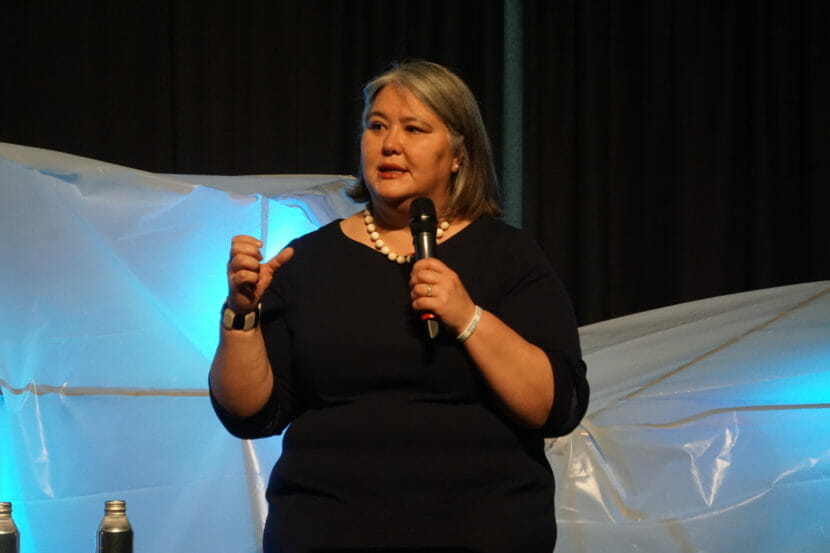
An Anchorage Superior Court judge ruled Friday that the Alaska Division of Elections acted correctly when it declined to replace independent candidate Al Gross with Republican candidate Tara Sweeney on the ballot for Alaska’s Aug. 16 special U.S. House election.
The decision was immediately appealed to the Alaska Supreme Court, but unless the justices overturn Friday’s decision, it means only three candidates will participate in Alaska’s first ranked-choice election.
Gross announced this week that he would withdraw from the House race despite finishing third in the state primary, whose results will be certified on Saturday.
Under ordinary circumstances, Gross’ withdrawal would have allowed Sweeney, who finished fifth, to advance to the general election in his place.
Alaska’s new election system, installed by a ballot measure in 2020, allows four candidates to advance to the general election. The winner of the general election is chosen by ranked-choice voting.
Among the laws accompanying the new elections system is a clause that states a withdrawn candidate can only be replaced if his or her withdrawal takes place at least 64 days before the general election.
Gross’ announcement came 57 days before the special general election, which is operating on a compressed timetable when compared to a regular election.
Alaska has been without representation in the U.S. House of Representatives since the March death of Congressman Don Young, and the special elections are intended to fill the seat until the winner of the November general election takes office in January.
Based on the timeline set by the Alaska Division of Elections, Gross would have had to withdraw from the race by June 13 — two days after the primary election day and before many votes were counted — in order for Sweeney to replace him.
Three voters filed suit on Thursday, and their attorneys argued in court and in writing to Superior Court Judge William Morse that the timeline was unrealistic and that failing to replace Gross would disenfranchise voters and allow future governors and election officials to manipulate results in future special elections.
Without a change, the attorneys wrote, “a candidate in a special election is deprived of the rights afforded candidates in a general election and voters are deprived of a substantive component of the ranked-choice voting system.”
Attorneys from the Alaska Department of Law, defending the Division of Elections, said they have no alternative, based on the plain language of the law installed by voters in 2020.
They were aided by attorneys representing Republican candidate Nick Begich, the second-place finisher in the primary.
Polling has indicated that Republican candidate Sarah Palin, the first-place finisher, is unpopular with many Alaskans. If Sweeney were eligible for election, Begich and she would be in competition for the votes of Alaskans who both dislike Palin and are unwilling to support the Democratic candidate, Mary Peltola.
Begich’s attorneys noted that although Alaska’s primary elections are designed to send four candidates to the general election, they can (and do) send fewer if fewer are available.
In many of this year’s legislative elections, there are fewer than four candidates running for office.
Morse ultimately sided with the state.
“That two-day window could hardly be briefer. Nonetheless, that is the period set by statute and the one the division must apply,” Morse wrote.
“The Division of Elections need not replace Al Gross with the fifth-place vote-getter on the special general election ballot,” he said.
Election officials have said the general election ballot must be finalized by June 28 in order to meet federally imposed deadlines for sending ballots to voters overseas.
The Alaska Supreme Court said it would accept supplemental briefings until 3:30 p.m. Friday, a sign it intends to act quickly.



